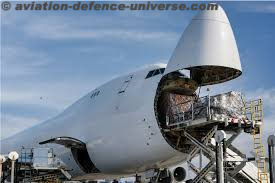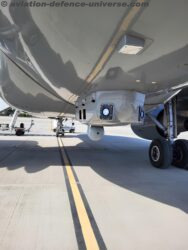Geneva/Berne . 4 May 2020. The International Air Transport Association (IATA), and the Universal Postal Union (UPU) warned that air capacity for postal services is insufficient and urged governments to do more to support the movement of mail by air during the COVID-19 crisis.
Owing to the drastic 95% reduction in passenger flights, which are typically used to transport mail, and a 25-30% increase in demand for e-commerce as customers and businesses resort to online purchasing in response to social distancing restrictions, postal administrations are facing a challenge in sending and delivering international mail, in particular, cross-continental mail.
IATA and UPU are calling on governments to facilitate the flexibility that airlines need to meet this critical demand by removing border blockages to ensure trade flows continue, avoiding unnecessary regulations and fast tracking the issuance of permits for chartered operations. Additionally, ensuring adequately trained staff are available to process and clear the mail upon arrival is essential.
IATA and UPU are also working to support posts’ use of cargo flights in addition to commercial passenger flights by providing information on the airlines and cargo carrier status, available new alternative routes and best practices.
“Airlines have been required to cut passenger services in the fight to stop the spread of COVID-19. So, it’s vital that everything is done to support the smooth movement of mail which is an important component of society,” said Alexandre de Juniac, IATA’s Director General and CEO.
“Posts are trusted partners in the delivery of goods, vital medical supplies and essential information on the pandemic. The cancellation of more than 4.5 million passenger flights – the primary means of transporting post – has meant that capacity is scarce, costs more and takes longer. Action needs to be swiftly taken to address the shortfall in air cargo capacity and to keep the mail moving,” said UPU Director General Bishar A. Hussein.
G20 governments, at their recent emergency meetings, committed to “minimize disruptions to trade and global supply chains and identified the need to prioritize keeping air logistics networks open and functioning efficiently. Posts and airlines are cooperating to meet this priority by ensuring that reliable operations continue throughout the pandemic.





























































































































